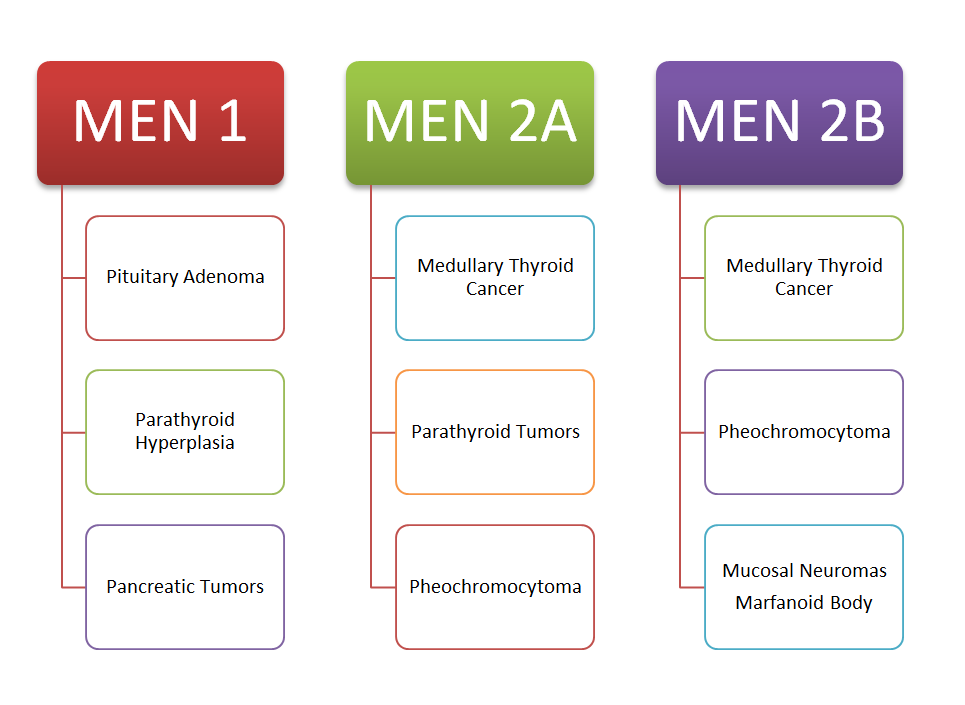If you are overweight or obese and have diabetes and are starting Ozempic but are worried because you also have hypothyroidism, Hashimoto’s thyroiditis, or Graves disease, this article can help your understanding of the benefits and risks.
Diabetes, Obesity, and Hypothyroidism are closely linked medical conditions. Ozempic helps all three conditions.
However, most people are nervous about the FDA Black BOX warnings of thyroid cancer associated with Ozempic.
Ozempic and Hypothyroidism: User’s reviews:
Before discussing the effects of Ozempic on thyroid functions, here are some reviews of patients who had Hypothyroidism, Graves, or Hashimoto’s or noticed a change in their thyroid blood work after they started using Ozempic.
“I am an overweight female with hypothyroidism and PCOS. I read that people using Ozempic ended up having an overactive thyroid disorder and other problems.” “I have also heard about thyroid cancer in rodents during the Ozempic trials on animals, which makes me the most nervous.”“But I also understand that my obesity and the risks of diabetes far outweigh these risks”. “Will it be Ok if I have hypothyroidism and use Ozempic for weight loss?” |
“Has anyone developed a change in their thyroid blood work after starting Ozempic?””My TSH has been around 25 for the past one year and has never come down, but it came to 1.16 only after the fourth dose of Ozmepic 0.25 mg” “I am not diabetic but using Ozempic purely for weight loss. Has anyone with hypothyroidism or Hashimotos have noticed a similar change?” |
“I am on Synthroid 137 mcg and Ozempic for the past 8 months. I am using Ozempic strictly for weight loss and have succeeded in losing 49 lbs so far.” “I plan to continue Ozempic indefinitely to maintain weight. I definitely need Ozempic to suppress my satiety, but hypothyroidism has never impacted my ability to lose weight.” |
“I have hypothyroidism and am on Ozempic too for the past 3 months. I am doing reasonably well and have lost some weight”. “I have great appetite suppression but so far I haven’t had much side effects. I had nausea and headaches in the beginning but those were manageable” |
“I have hypothyroidism and on Ozempic for the past 10 months. I have lost 84 lbs” “I had severe nausea and hypoglycemia after I allowed myself to get too hungry. I would feel so sick after that and tried to eat but couldn’t!” “Finally, I got adjusted and found a balance between eating, staying hungry, and managing hypoglycemia” |
I have hypothyroidism, PCOS, and insulin resistance. I lost about 25 lbs and planning to lose another 15 lbs minimum.I am on 0.5 mg dose and have noticed recent weight gain but no side effects so far. “I was wondering if increasing the dose might help me achieve my weight loss goals?” |
“I have Hashimotos hypothyroidism. I am on Ozempic and have lost about 20 lbs in 10 weeks” “I have noticed fatigue and lethargy after I started Ozempic. With Hashimotos, my weight loss is steady but very slow”. “I am now on phentermine and Ozempic to get rid of the fatigue” |
“I have Hashimoto’s hypothyroidism. I have severe constipation. I haven’t lost weight; rather have some weight gain 😥.” “Even though I have great appetite suppression and my blood glucose has markedly improved.” “I guess my weight gain started after my doctor stopped Jardiance. I have heard Ozempic and Jardiance are the best combination to lose weight and control diabetes at the same time.” |
“I have Hashimotos and am using Ozempic for 3 weeks. I am losing weight @ 2 lbs a week but my nausea is getting worse”.”I don’t feel like eating, have occasional stomach ache and diarrhea” “I plan to do my blood work every 6 monthly” |
“I have Hashis and on Ozempic for the last 10 months. I have lost about 50 lbs”. “I discontinued Ozempic for 2 weeks and ate all sorts of stuff while on vacation and put back 6 lbs” ” I also have Crohn’s disease but I am ok with Ozempic”. “Cutting back carbs and sugars have helped me lose weight again” |
“I have Hashimoto’s and am using Ozempic. I have lost 16 kgs so far.” “I noticed rapid hair fall using Ozempic. I stopped Ozempic for two weeks, but my hair is still falling” |
| “I am taking Synthroid 75 mcg for Hashimotos. My Doc started me on Ozempic and Wellbutrin and I lost 10 lbs in the first week 😯.” |
Ozempic and Thyroid Cancer:
Ozempic use is associated with a special kind of thyroid cancer called Medullary thyroid cancer. These cells are not responsible for thyroxine production.
The “C-cells” or the parafollicular cells of the thyroid gland produce a substance called “calcitonin” which is responsible for bone health.
In rodents, Ozempic use was associated with an increased incidence of “Medullary Thyroid Cancer”. Cases of MTC have not been reported in humans until now.
In one study, GLP-1 receptor expression was observed in 28% of patients with medullary thyroid cancer compared to 6% of the control group [Ref].
But still, because of the theoretical risks, the manufacturer recommends avoiding Ozempic if you have a past history of MTC, a family history of MTC, or have MEN-2 syndrome.

In addition, the manufacturer recommends reporting any suspicious lump in the neck, hoarseness of voice, or difficulty swallowing if using Ozempic.
In one study, GLP-1 receptor expression was investigated in cases of Medullary thyroid cancer, C-cell hyperplasia, and papillary thyroid cancer. The percentage of receptors with GLP-1 receptor positivity as seen in the study is summarized below [Ref]:
| Type of Thyroid Cancer | Total Cases | GLP-1 expression (Percentage of cells positive) | |||
| >70% | 10 – 35% | <10% | Negative | ||
| Medullary Thyroid Cancer | 12 | 6 | 0 | 5 | 1 |
| C cell hyperplasia | 9 | 2 | 4 | 3 | 0 |
| Papillary Thyroid Cancer | 17 | 2 | 1 | 0 | 14 |
GLP-1 expression was seen in most patients with “C-cells” hyperplasia and medullary thyroid cancer. However, it was very interesting to note that 3 out of 17 cases of papillary thyroid cancer also expressed GLP-1.
Ozempic and Hypothyroidism:
If you have gained weight because you are hypothyroid, you should first take Levothyroxine (Synthroid) to correct your hypothyroidism.
You will notice that it will gradually improve your metabolic rate and you may lose the extra water and fats slowly when your thyroid functions normalize.
However, if your thyroid tests are in the normal ranges after Synthroid use and you are still overweight, Ozempic may help you lose the extra weight.
People have lost significant weight using Ozempic despite having hypothyroidism. Once you lose weight, you may need to adjust your thyroxine dose.
The usual dose of thyroxine of Synthroid is 1.6 mcg/kg. When you lose weight, your thyroid functions may become abnormal. You may need to reduce your thyroxine dose.
Do not start Ozempic purely for weight loss if your thyroid functions have not normalized or you have not started treatment for hypothyroidism.
You could be wasting money and exposing yourself to more side effects. Ozempic slows your stomach movements and so does hypothyroidism. Similarly, fatigue, nausea, and constipation are frequent side effects of Ozempic as well as hypothyroidism.
Ozempic and Hashimotos:
Hashimoto’s disease or Hashimoto’s thyroiditis is basically an immune-mediated disease where your own cells attack your thyroid gland.
Hashimoto’s is one of the most common causes of hypothyroidism. Hashimoto’s thyroiditis is associated with a significantly increased risk of the following cancers [Ref]:
- Thyroid cancer
- Breast cancer
- Lung cancer
- Bowel cancer
- Urogenital cancer
- Blood cancer, and
- Prolactinoma
If you have Hashimoto’s thyroiditis and use Ozempic, your risk of thyroid cancer may increase. However, data is lacking.
On the other hand, obesity is also associated with an increased risk of certain cancers, including:
- Bowel and gastrointestinal cancers
- Thyroid cancers
- Kidney cancer
- Breast cancer
- Endometrial cancer
- Liver cancer
- Ovarian
- Multiple myeloma, and
- Meningioma
Whether the risk is highest with obesity or Hashimoto’s disease is not known. However, one should be cautious in case of any unusual symptoms.
In addition, Ozempic may improve your thyroid functions without the need for thyroxine if you have subclinical hypothyroidism. Thyroid functions improve with weight loss, therefore, Ozempic may indirectly improve your thyroid functions.
If you are on thyroxine, you may need a dose adjustment.
Ozempic and Graves’ Disease:
Graves’ disease is one of the common causes of an overactive thyroid gland. It is an immune-mediated disease, but unlike Hashimoto’s thyroiditis, the antibodies are stimulatory in nature.
TSIs or Thyroid-stimulating immunoglobulins activate your thyroid gland to produce more thyroxine. Individuals with Graves’ disease have weight loss, sweating, palpitations, and tremors.
Since Ozempic is also associated with significant weight loss, you may lose weight dramatically if you have concomitant Graves’ disease too.
Before starting Ozempic treatment, it is better to treat your Graves’ disease with carbimazole, methimazole, radioiodine therapy, or surgical thyroidectomy.
On the other end, if you are on Ozempic and lose weight more than your expected weight loss, check your thyroid functions.
Ozempic and Thyroid Function (TFTs):
Ozempic use has been associated with an improvement in thyroid functions. People with subclinical hypothyroidism may spontaneously improve using Ozempic.
People on Synthroid (Thyroxine) may need to reduce their thyroxine dose because Thyroxine is given in a dose of 1.6 mcg/kg.
If your weight is 110 kg, your usual thyroxine dose is 176 mcg per day.
However, with Ozempic or otherwise, if you lose weight to 95 kg, your thyroxine dose will be 152 mcg per day.
Apart from weight-associated changes in thyroid functions, Ozempic may impair the absorption of Thyroxine (Synthroid) because of Ozempic-associated gastrointestinal symptoms.
It is, therefore, best to monitor thyroid functions once you start using Ozempic.
- 97% Pure Berberine Powder – High-purity, plant-derived extract with a rich yellow color. Carefully processed and lab-tes…
- Naturally Bitter Taste – Berberine has a strong, naturally bitter flavor. Best enjoyed when mixed with smoothies, tea, c…
- 100g in Resealable Foil Pouch – Packaged in a premium aluminum pouch to protect from moisture and light, keeping the pow…

- Toleriane Double Repair Face Moisturizer UV is formulated with a high concentration of La Roche-Posay prebiotic thermal …
- This dermatologist-tested face moisturizer with SPF has a lightweight, refreshing texture that is easily absorbed into t…
- Provides all-day hydration and broad-spectrum UVA/UVB protection. Produces a unique prebiotic action on the skin microbi…

- 5 Delicious Flavors: Freeze-Dried Mango, Freeze-Dried Blueberry, Freeze-Dried Orange, Freeze-Dried Dragon Fruit & Freeze…
- Pure and Natural Ingredients: Our fruit powders are made without synthetic pesticides, GMOs, or harmful chemicals. Each …
- Health Benefits: Our carefully selected fruits are packed with antioxidants, vitamins, fiber, and digestive enzymes to s…

- 🌿 4 Tangy Citrus Flavors in One Pack: Enjoy a delicious variety of Orange, Lime, Lemon, and Kiwi powder – 5 sachets of e…
- 💧Easy to Mix & Refreshing: Just add to water, smoothies, sparkling drinks, or tea for a vibrant citrus kick. Dissolves i…
- 🛡️Rich in Vitamin C & Antioxidants: Made from real fruit powders, this mix offers a natural source of vitamin C to suppo…

- VARIETY PACK – Includes 5 delicious organic berry powder flavors: Freeze-Dried Goji Berry, Freeze-Dried Strawberry, Free…
- PURE INGREDIENTS – Made with 100% natural, freeze-dried berries and absolutely no added sugar, artificial ingredients, o…
- CONVENIENT PACKAGING – Contains 20 pre-portioned 5g packets (100g total), eliminating the need for measuring and ensurin…











